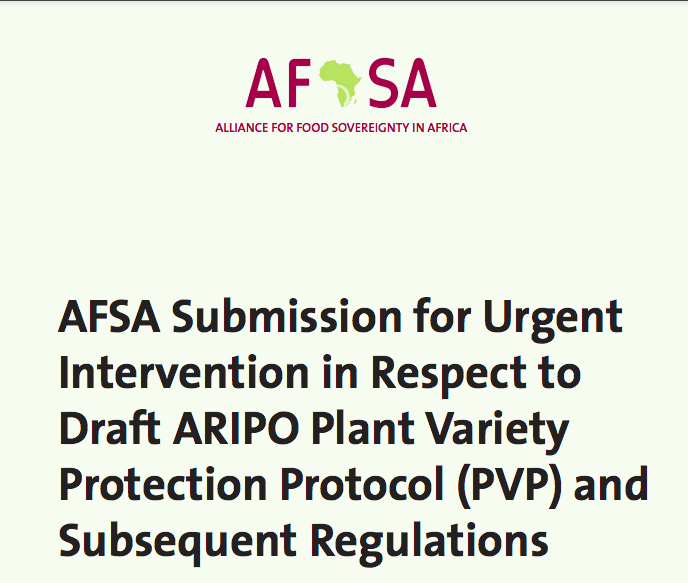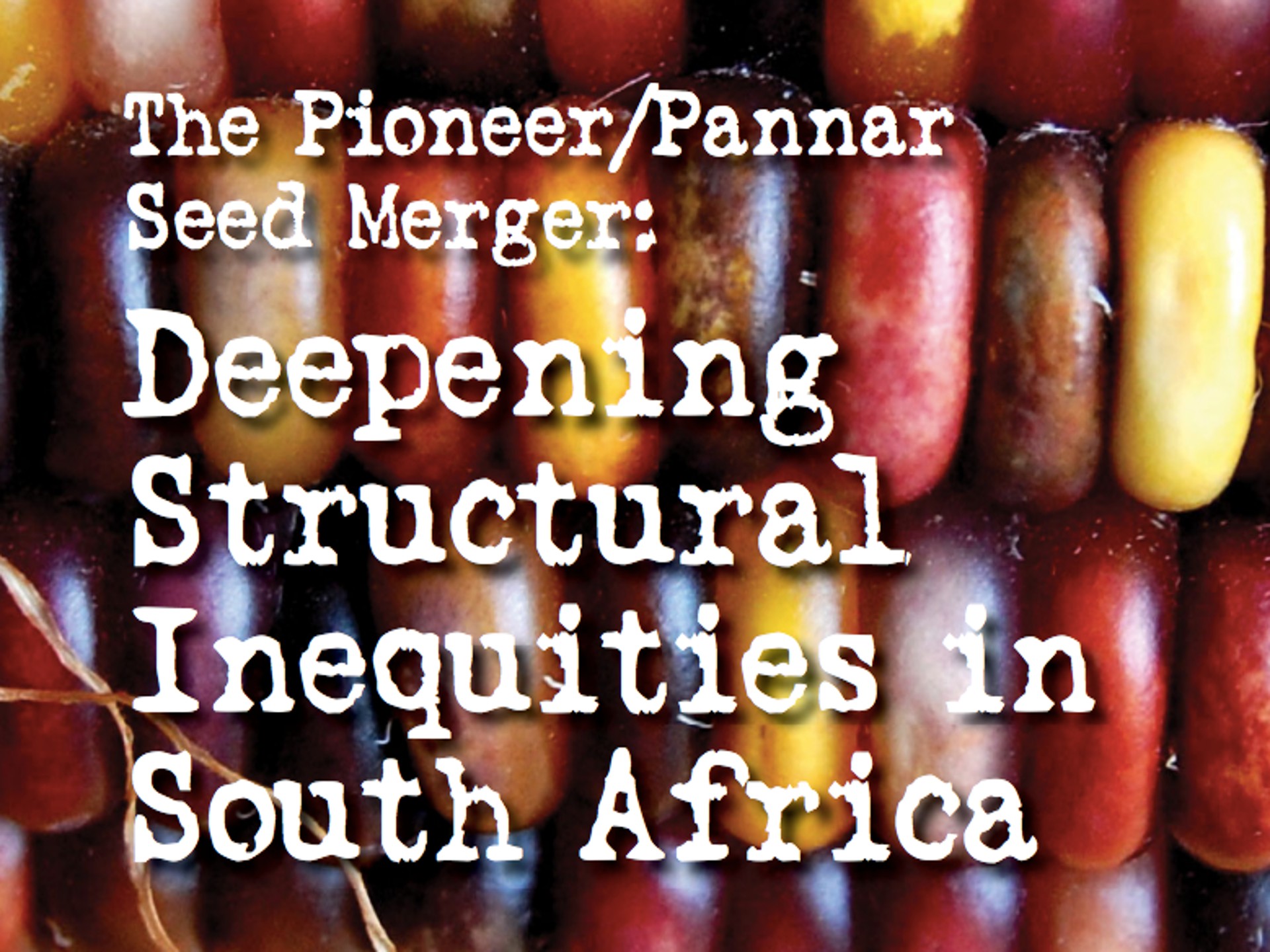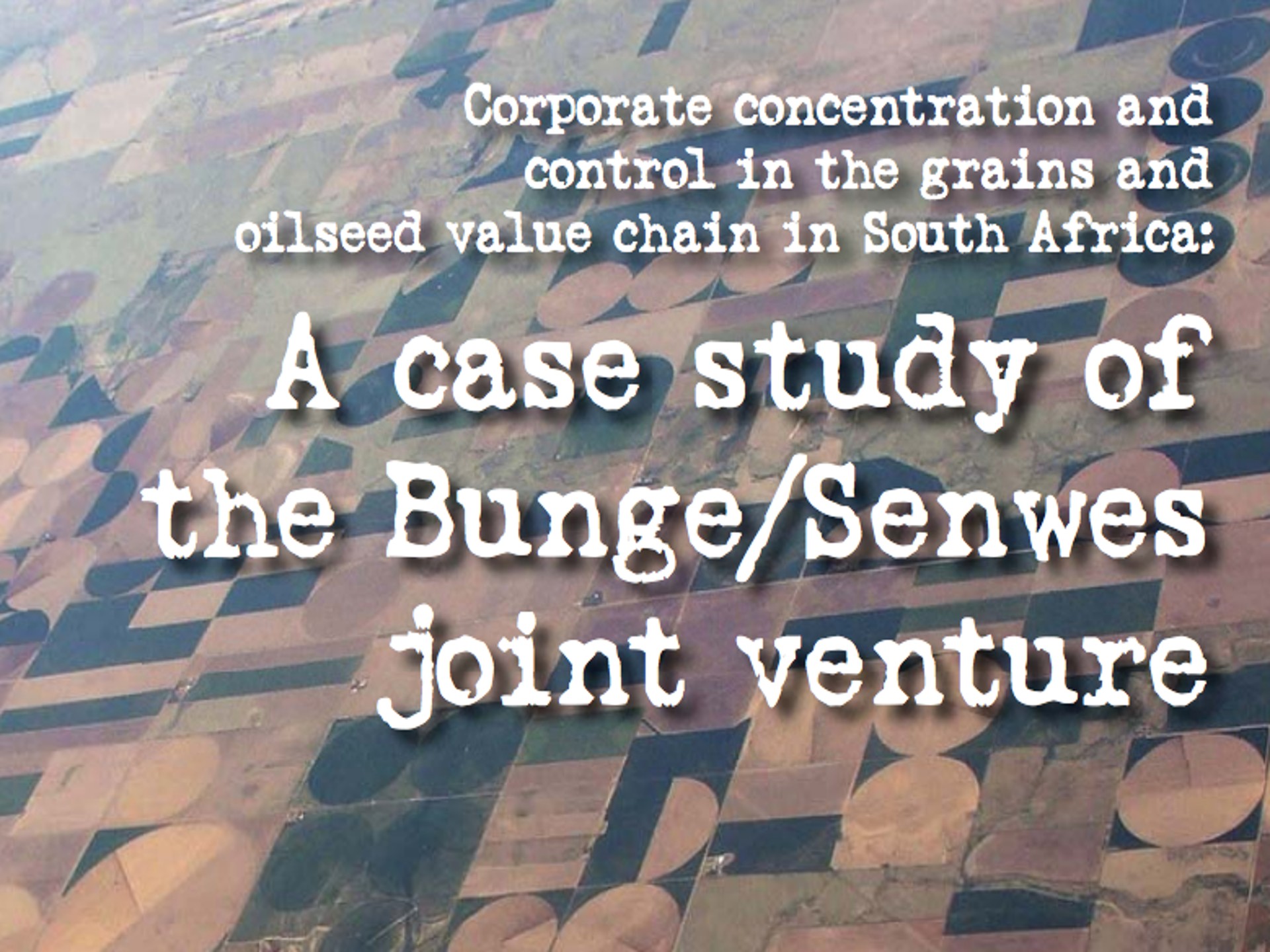Latest Resources

11 June 2014
AFSA Makes Small Gains for Farmers’ Rights in Draft SADC PVP Protocol
AFSA members participated at a SADC Regional Workshop that took place 13-14 March 2014, in Johannesburg, South Africa. The aim of the workshop was to review the draft SADC PVP Protocol. After marathon, highly contentious and difficult discussions, AFSA members were able to persuade member states to amend key provisions in the draft SADC PVP […]

20 May 2014
GM Contamination, Cartels and Collusion in South Africa’s Bread Industry
This briefing paper exposes the high levels of GM soya in South Africa’s popular white bread brands and reveals how just four companies – Tiger Brands, Pioneer Foods, Premier Foods and Foodcorp control the Wheat-to-Bread value chain. This value chain feeds into another concentrated retail food market controlled by Shoprite/Checkers, Pick n Pay, Woolworths and […]

5 November 2013
GM Maize: lessons for Africa – Cartels collusion and control of South Africa’s staple...
This is a briefing about power and control in our food system, focusing chiefly on South Africa’s staple food, maize. It shows how a select group of companies, including Tiger Brands, Pioneer and Premier Foods commandeer the entire maize value chain and continue to squeeze the poorest South Africans. These corporate giants are now glancing […]

15 October 2012
Setting the record straight on the Seralini GM maize rat study: why the SA government must urgent...
In this briefing we respond to the main criticisms of the Seralini GM maize rat study (which have been appearing ad nauseum in the world’s mainstream media); provide some background as to the importance of the NK603 GM maize to the biotechnology industry (and hence the scale of their reaction); and place the attacks on […]

13 September 2012
The Pioneer/Pannar seed merger: deepening structural inequalities in South Africa
In this briefing, we deal with the Pioneer/Pannar seed merger, outlining the evidence led by the ACB in opposing the merger, what is at stake for South Africa if the merger is approved and the extent to which the merger will deepen structural imbalances in the South African economy. Read the briefing here.

1 August 2012
How Much Glyphosate is on your dinner plate? SA’s food safety compromised by lack of testing
This briefing paper forms part of a series of briefing papers on glyphosate to be released later this year by the African Centre for Biosafety (ACB). In this paper, we focus principally on food safety issues, highlighting our grave concerns about the utter regulatory failure concerning particularly, the monitoring, inspection and testing of food for […]

15 May 2012
Hazardous Harvest: Genetically Modified Crops in South Africa: 2008-2012
In this publication, we provide a comprehensive update of the situation with GMOs in SA. Since our last South African update on genetically modified crops, and the transnational companies that control the technology published in 2008, GMOs have become even more entrenched in the country’s agricultural landscape. Over three-quarters of South Africa’s maize is now […]

25 March 2012
GM Labeling in South Africa: The Law Demystified
During March 2012, the ACB revealed that four household food products tested positive for genetically modified organisms. None of these products have been labeled in accordance with the requirements of applicable South African laws. There appears to be a great deal of confusion about what the laws provide. In this briefing, we outline what the […]

3 October 2011
Corporate concentration and control in the grains and oilseed value chain in South Africa: A case...
The Bunge/Senwes joint venture signals the first significant investment by Bunge in Africa. Bunge is one of the world’s largest and most influential corporations and is amongst a handful of companies dominating global trade in agricultural commodities. Senwes holds a dominant position in the South African market for the storage and handling of grain crops. […]

3 September 2011
GM Banana Slips in South Africa: Key Issues and Concerns
In this briefing we deal with the application by the University of Pretoria for permission to conduct the first ever field trials in South Africa involving GM bananas. The rationale for the genetic modification is to combat Fusarium wilt, caused by a soil born fungi Fusarium oxysporum f.sp cubense (Foc). The idea is to genetically […]
